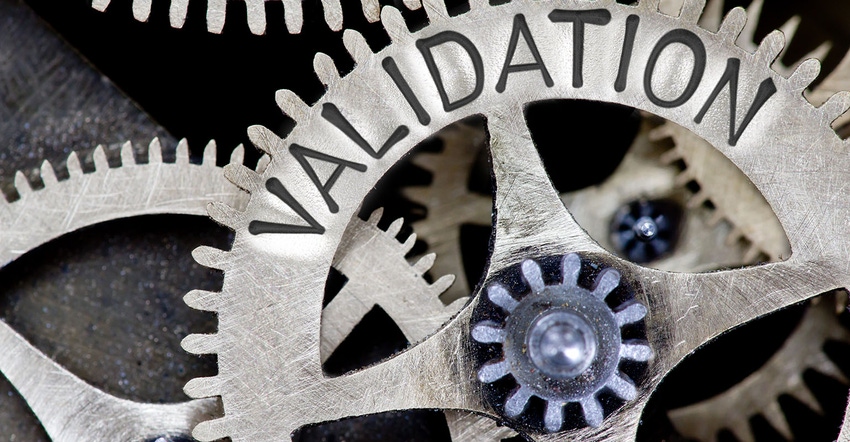The Troubleshooter: Building a Validated Plastic Injection Molding Process
Step-by-step instructions on establishing a robust, repeatable injection molding process.
May 15, 2023

The primary goal of plastic injection molding processors is the development of robust processes for all jobs running on the production floor. During the engineering stage, successful molding companies understand that robust, consistent, and repeatable processes must be established. This article outlines the steps required to establish such processes and run a profitable, efficient shop.
Validated injection molding process, stage one
First, let’s establish that every process must follow normal scientific molding protocol. With pack and hold at zero, the shot should be 95 to 98% full. Temperatures and pressures should be kept as low as possible to ensure optimal cycle time efficiency. Once good parts are being produced, the first stage of process validation requires 100% efficiency (based on quoted cycle) and 0 to 1.5% scrap (preferably zero), consistently maintained for eight hours. It is important to note that by running zero scrap we ensure that operators are packing zero bad parts. Every effort must be made to produce zero scrap, if possible. Once this has been achieved, all setup data is recorded to be run again.
Validated injection molding process, stage two
The second stage of validation takes place when the mold is run again. Great care must be taken to perform the mold setup procedures the same way they took place the first time. The process set points recorded in the initial run are again loaded into the press controller. For stage two validation to be successful, the press must be able to produce good parts in the first three to five shots at startup. The process also must be repeatable, again running at 100% efficiency and producing 0 to 1.5% scrap (preferably zero) for another eight-hour run. Once this is successful, process monitoring data is established and historical data is now recorded.
Process monitoring
Process monitoring data is based on process actuals recorded while the press is in a running state producing good parts as outlined during the validation process. Primary recordables would be:
Fill time (+/-0.25 seconds)
Peak pressure (+/-100 psi)
Screw rotate time (+/-1 to 2 seconds)
Cushion (+/-0.10 inches)
Part weight (+/-1.5% of mean, measured in grams)
Cycle time (+/-1 second)
A validated process should not require changes to set points. If criteria fall outside the control windows, the first step should be to clean the mold and verify process set points. If a process change must be made, great care should be taken to stay within the established process windows to ensure process consistency is maintained.
Historical data
Historical data is recorded to monitor press conditions as they relate to press and auxiliary performance while running a validated process. Please note that any conditions tagged as “running state” must be recorded after the press has run 30 to 60 minutes to ensure that heat soak conditions have been achieved. Historical data to record would be:
Barrel temperature set points and actuals (running state, including steel temperatures between bands)
Mold temperature set points and actuals (running state, including steel temperature)
Water GPM and pressures to and from the mold
Back pressure actuals
Clamp force actuals
Mold open actuals
Hot runner set point actuals (running state)
As outlined above, the key to a successful processing structure is taking the proper steps to establish and then monitor a process for every molded part. Processing is not an art — it is a science based on strict development procedures, monitoring, and historical data. Profits are key to our success, and they can easily be achieved by using the process development tools provided.
About the author
Garrett MacKenzie is the owner/editor of plastic411.com and a consultant/trainer in plastic injection molding. He has provided process-engineering expertise to many top companies, including Glock, Honda, Johnson Controls, and Rubbermaid. MacKenzie also owns Plastic411 Services, which provides maintenance and training support to Yanfeng Automotive Interior Systems, IAC, Flex-N-Gate, and other top automotive suppliers. He was inducted into the Plastic Pioneers Association (PPA) in 2019, where he serves on the Education Committee evaluating applications from college students seeking PPA scholarships. You can reach him via e-mail at [email protected].
About the Author(s)
You May Also Like


